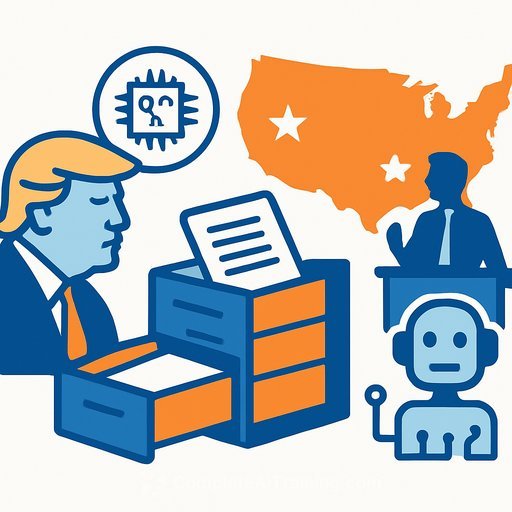Washington State Local Governments Embrace AI Amid Policy Gaps
Local governments in Washington state are increasingly using artificial intelligence tools like ChatGPT to assist with daily tasks, but official policies are struggling to keep pace. A public records request revealed dozens of ChatGPT interaction logs from city employees in Everett and Bellingham, highlighting widespread AI adoption with few clear guidelines.
AI in Action: The Snowplow Complaint
In February, Bellingham resident Bre Garcia emailed the city about snow-covered streets that made commuting unsafe. The city's reply, which Garcia felt was dismissive, was largely generated by ChatGPT. A staff member fed her email into the chatbot and used its output to draft a response, adding only a few words.
This approach isn’t unique. Records show Bellingham employees rely on AI-generated replies for constituent concerns about parking, traffic, and homelessness. Mayor Kim Lund acknowledges that responding to emails is a common use case but emphasizes the need for critical human oversight.
Widespread AI Use, Limited Guardrails
Bellingham is still finalizing its AI policy and debating if AI-generated messages should be disclosed to the public. This uncertainty is common across local governments, where AI adoption often outpaces the development of safeguards. A recent survey found nearly 80% of state and local IT directors nationwide worry about unclear AI regulations.
Washington state’s IT department issued interim guidelines in 2023, urging employees to review AI-generated content for bias and accuracy and avoid inputting confidential information. The guidelines also recommend labeling AI-generated communications to maintain transparency.
Different Approaches in Everett and Bellingham
Everett’s IT department issued provisional AI guidelines in mid-2024 and is creating a comprehensive policy based on a national GovAI Coalition template. The city plans to restrict AI use to Microsoft Copilot, with other tools requiring special approval. Union feedback has been integrated, and formal approval is anticipated soon.
Conversely, Bellingham takes a more permissive stance, allowing staff broad flexibility in AI tool choice, including ChatGPT. While Copilot is encouraged, alternative chatbots remain accessible.
Handling Sensitive Data with Care
Concerns about privacy and data security persist. Bellingham City Councilmember Jace Cotton voiced worries about feeding sensitive city information into opaque AI algorithms. Washington’s AI guidelines caution against entering non-public data into AI systems due to risks of unauthorized disclosures.
One instance involved a Bellingham IT staffer submitting the city’s GIS code related to homeless encampments to ChatGPT for debugging. The records had to be heavily redacted to prevent cybersecurity vulnerabilities.
Ethical Use and Accountability Challenges
Opinions differ on whether generative AI can be used ethically in government. Some experts advocate for strict security measures, transparency, and task-specific models. Others argue that AI lacks true intelligence and caution against relying on it to replace human judgment, especially given its tendency to produce inaccurate information.
Looking Ahead: Training and Transparency
Both Bellingham and Everett acknowledge AI is here to stay. Everett has formed a group of "AI champions" who meet regularly to train and support staff across departments. Bellingham’s draft AI policy promotes AI to improve services and efficiency while stressing transparency and privacy.
IT directors predict increasing AI integration. Bellingham plans to deploy a chatbot on its website to handle routine citizen queries, freeing staff to focus on complex issues. However, Mayor Lund remains concerned about the environmental impact of AI’s energy-intensive data centers.
Garcia, the resident who raised the snowplow complaint, worries that AI responses lack genuine human connection and cautions that if students used AI-generated replies like the city’s, they might face plagiarism accusations.
Conclusion
As AI tools become embedded in local government workflows, departments must balance efficiency gains with ethical considerations, data privacy, and public trust. Developing clear policies, training staff, and maintaining transparency will be essential steps for responsible AI use in public service.
Your membership also unlocks:






